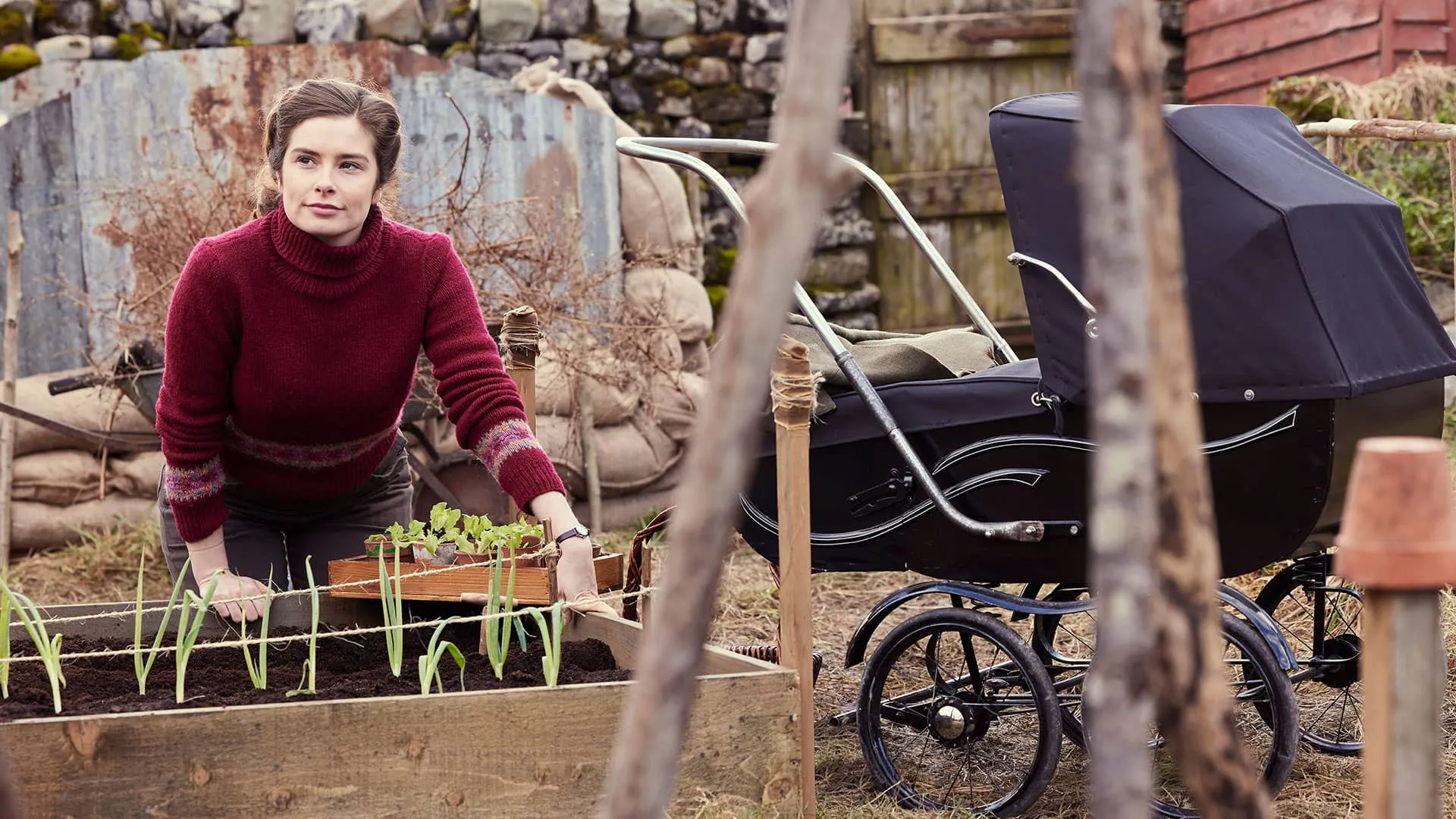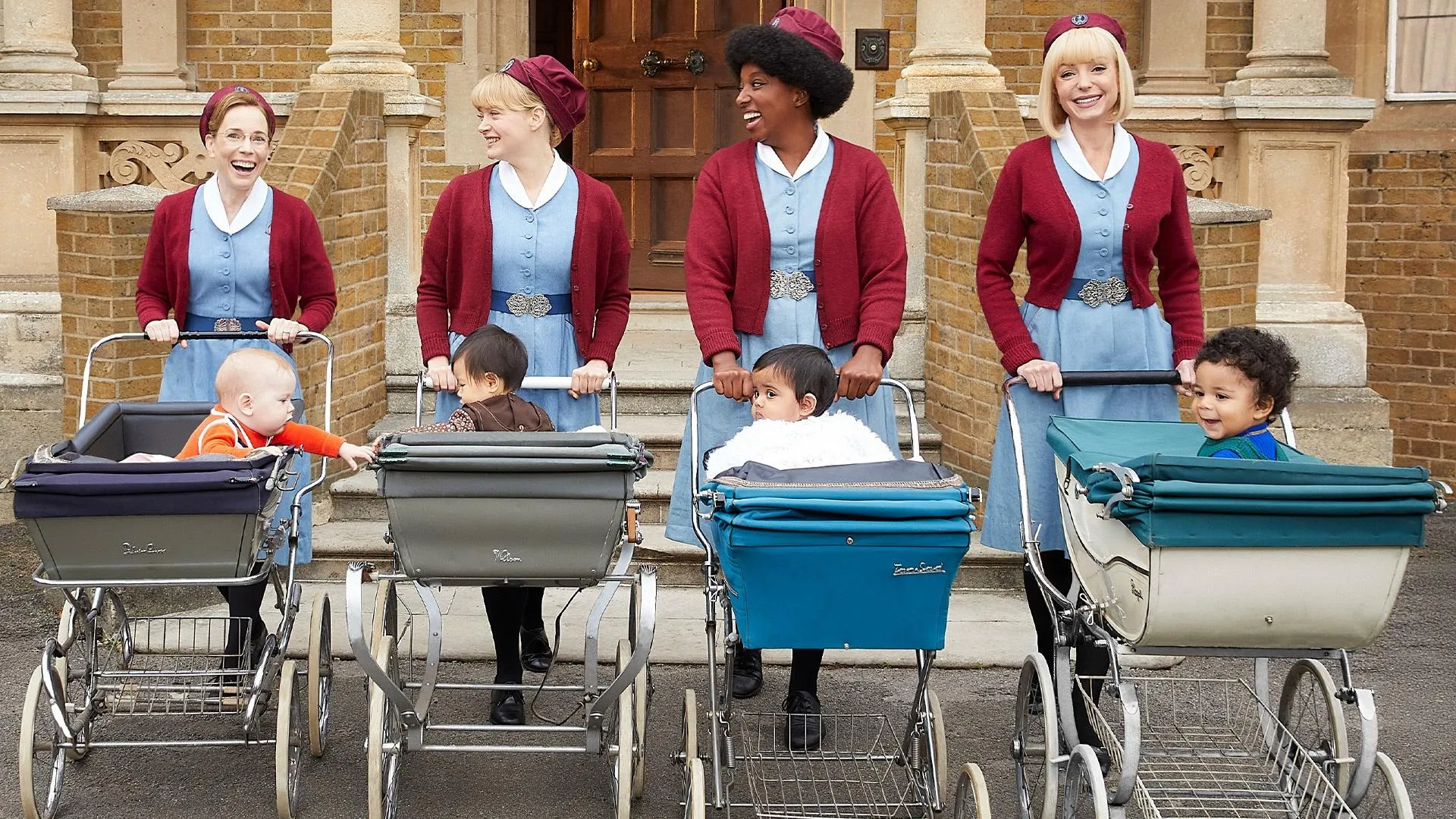

Season 5 History: Victory Gardens in WWII

Among the many World War II home front efforts we see in All Creatures Great and Small, perhaps none is more familiar to American viewers than victory gardens, as the wartime activity was prevalent Stateside as well. All Creatures Great and Small’s official historian, Dr. Mark Roodhouse of the University of York, digs in to the campaign that had Brits growing their own produce for victory.
Begun as a response to food shortages in World War I, victory gardens again rose to prominence in World War II. In addition to the morale boost gained by a sense of doing one’s part, the gardens were beneficial, and thus encouraged by the government, for several reasons. Prior to the war, much of Britain’s food was imported, and with supply lines broken and blockades in place, food shortages grew severe and rations were put in place. Growing their own vegetables, fruit, and herbs helped civilians to supplement their rations. And, Roodhouse explained, as the gardening reduced imports of food, they reduced transport during a time when fuel was also in limited supply. “They took vehicles off the road because you, for instance, weren’t looking for strawberries from down south coming up north, or raspberries from Scotland coming down to York.”
So people were encouraged by the government to dig up their gardens (what we call “yards” in the US), and it made their rations and their money go a lot farther. But, Roodhouse noted, “it was only something you could do if you owned a garden. So if you had a garden—if you lived in the countryside or you were middle class in a city—then you could have a better standard of living. If you were a working class family, living in central Leeds, for instance, you might have gotten an allotment, if you were lucky. But otherwise, it was very difficult for you to do anything but live on the rations and pay the high prices.”
In rural areas, the standard of living on the rations was much better than in urban areas. Roodhouse explained that informal bartering was a regular occurrence. “People would go, ‘I’ve got some potatoes, do you want some?’ And then either it was a barter or just reciprocal gifting. If people had a glut of something, then they would share it with other people. And of course, gardening is a bit of a British obsession anyway.”
Video: The Cast On the Home Front
Season 5 History: Beasts of Burden in WWII
Season 5 History: Requisitioned Estates in WWII
Season 5 History: The ARP and Blackouts in WWII Rural England
Season 5 History: Who Were Land Girls and What Was the Women's Land Army
James Herriot (Alf Wight)'s Real WWII Experience



